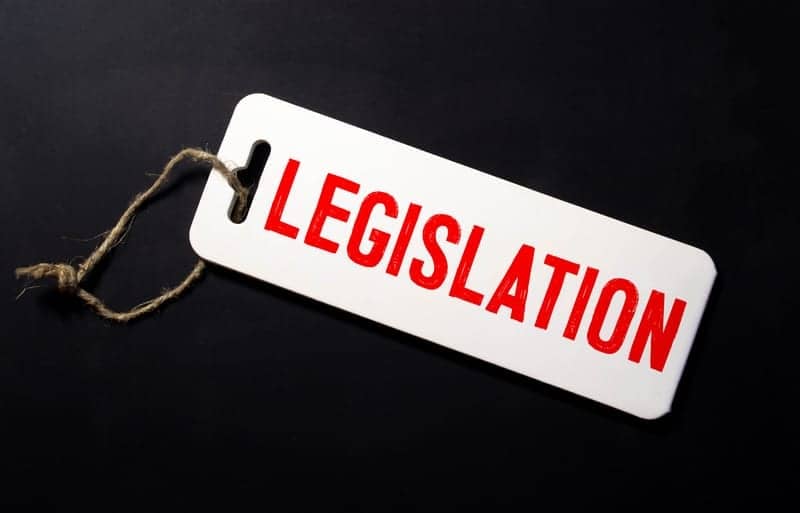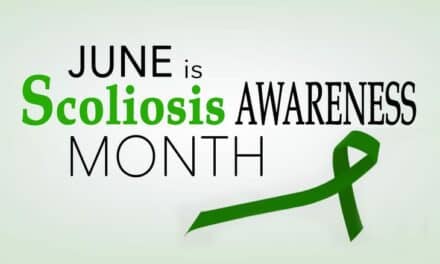(Washington, DC) US Senators Robert Casey (D-PA) and Lisa Murkowski (R-AK), and US Representatives Bobby L. Rush (D-IL) and Markwayne Mullin (R-OK), introduced the Allied Health Workforce Diversity Act (HR 3320/S 1679) in the House of Representatives and US Senate.
This legislation would provide grants to increase opportunities for individuals who are from underrepresented backgrounds, including students who are from racial and ethnic minority groups, in the professions of occupational therapy, physical therapy, respiratory therapy, speech-language pathology, and audiology.
The American Occupational Therapy Association (AOTA), the American Physical Therapy Association (APTA), the American Association for Respiratory Care (AARC), the American Speech-Language-Hearing Association (ASHA), and the American Academy of Audiology (AAA) are thrilled to have committed champions to a more diverse and inclusive workforce, and are working together to help advance this legislation, according to a news release.
“A diverse and well-trained health care workforce is essential to improving quality of care. This legislation’s investment in recruitment will diversify the health care workforce and contribute to better health care overall for all Americans.”
— US Senator Robert Casey (D-PA)
“America’s health care industry has long struggled to address health care provider shortages. Unfortunately, among the health care professionals we do have, Alaska Native populations are significantly underrepresented, including in the fields of respiratory therapy, occupational therapy, physical therapy, speech-language pathology, and audiology.
“By helping underrepresented groups, including Alaska Natives, become more involved in health care professions, we will help address workforce shortages in our communities and also ensure that care is culturally relevant. I appreciate Senator Casey for his leadership on this legislation and remain committed to creating a more robust health care workforce in Alaska.”
— US Senator Lisa Murkowski (R-AK)
“The lack of diversity in allied health fields is shocking — less than 5% of physical therapists, occupational therapists, speech-language pathologists, and audiologists are Black. This leaves many patients of color unable to find a provider from their same racial or ethnic background, potentially resulting in worse health care outcomes.
“I thank my colleagues in the House and Senate for their support on this important legislation, which would help create pathways to meaningful, high-paying jobs in the health sector and expand coverage to communities that need it most.”
— US Representative Bobby L. Rush (D-IL)
“Too often, minorities, people from disadvantaged communities, and those who live in rural areas don’t have access to allied health services, like respiratory therapy, occupational therapy, speech pathology, and physical therapy.
“This legislation helps change that by incentivizing greater diversity in the allied health workforce. Increasing the number of providers who can provide culturally competent care will help improve health outcomes and result in higher quality care for patients.”
— US Representative Markwayne Mullin (R-OK)
Occupational therapists and occupational therapy assistants help people across the lifespan participate in the things they want and need to do through the therapeutic use of everyday activities (occupations). According to AOTA’s 2019 Salary & Workforce Survey, the percentage of occupational therapy practitioners identifying themselves as African American or black is 3%, and those identifying as Hispanic or Latinx is 3.9%. Only 1.8% identify as multiethnic.
“The ability for an occupational therapy client to identify culturally with their occupational therapy practitioner enhances the therapist-client experience, and improves health outcomes.
“This legislation would provide new professional opportunities for individuals whose backgrounds and lived experiences are currently underrepresented in the occupational therapy workforce. Having a more diverse workforce strengthens our profession and builds capacity for occupational therapy professionals to better address the health needs of all Americans.”
— Wendy C. Hildenbrand, PhD, MPH, OTR/L, FAOTA, President of AOTA
Of the approximately 223,700 physical therapists and 105,800 physical therapist assistants currently in the US, only 23% of PTs and 26% of PTAs are considered racial or ethnic minorities, which is not reflective of the patients served. APTA is committed to increasing diversity among the physical therapy workforce, which is why it is a central goal of its strategic plan.
“APTA’s strategic plan calls for us to be an inclusive organization that reflects the diversity of the society the physical therapy profession serves. To do so, we must ensure there are opportunities that allow for inclusion of all individuals who want to become physical therapists and physical therapist assistants. This legislation will help to provide those.
“Patients who receive care from providers who share their racial and ethnic backgrounds tend to respond better to treatment, which makes this legislation so important, and we applaud the Representatives for introducing it.”
— APTA President Sharon L. Dunn, PT, PhD
Data from a 2020 AARC Human Resources Survey show only 6% of respondents identified as Hispanic, Latino, or Spanish origin, while 9.6% identified as Black or African American. Another 11.3% of respondents represented multi-ethnic backgrounds. The AARC supports a diverse and underrepresented population to enter the respiratory profession as an integral part of its strategic plan, and and the AARC is encouraged that this bill will help achieve that goal.
“This legislation helps ensure the respiratory therapy workforce will reflect the growing diversity of the patient population they treat. The COVID-19 pandemic has highlighted the important role respiratory therapists play in treating patients with respiratory conditions.
“We anticipate the demand for their expertise will only grow as the ongoing burden of respiratory diseases like COPD increases, and we gain a better understanding of the long-term effects of COVID-19. We thank Representatives Rush and Mullin, and Senators Casey and Murkowski, for their leadership on this important issue.”
— AARC President Sheri Tooley, BSRT, RRT, RRT-NPS, AE-C, CPFT, FAARC
Just over 8% of ASHA members identify themselves as members of an underrepresented racial group, along with 6.1% who identify their ethnicity as Hispanic or Latino. Additionally, only 8% of ASHA’s audiologists, speech-language pathologists, and support personnel indicate that they meet the ASHA definition of a bilingual service provider.
“Recruiting and sustaining a diverse workforce of audiologists and speech-language pathologists is a top priority for ASHA as it allows the professions to better meet the needs of students, patients, and clients from all backgrounds.
“ASHA thanks Senators Casey and Murkowski, and Representatives Rush and Mullin, for reintroducing the Allied Health Workforce Diversity Act as we strive to develop a population of clinicians that more closely reflects those we serve. By bringing more diversity to the professions, we can better address the needs of children and adults from underrepresented backgrounds, as well as strengthen the discipline of communication sciences and disorders as a whole as we work to address healthcare and educational disparities and systemic racism.”
— ASHA President A. Lynn Williams, PhD, CCC-SLP
“This measure is a win-win. Being able to ensure that we’ve made the profession of audiology accessible and inclusive for everyone will strengthen the profession and, hopefully, provide access to hearing health services to a larger population.
“The CDC estimates that more than 38 million people in the US have some form of hearing loss and need to see an audiologist. This bill will help to provide greater opportunities for more people to enter our profession and improve our ability to effectively serve the diverse population of individuals who experience hearing and balance difficulties. It’s a win for everyone.”
— American Academy of Audiology (AAA) President Angela Shoup, PhD
[Source: American Speech-Language-Hearing Association]
Related Content:
Allied Health Workforce Diversity Act Achieves Unanimous House Vote, Moves to Senate





